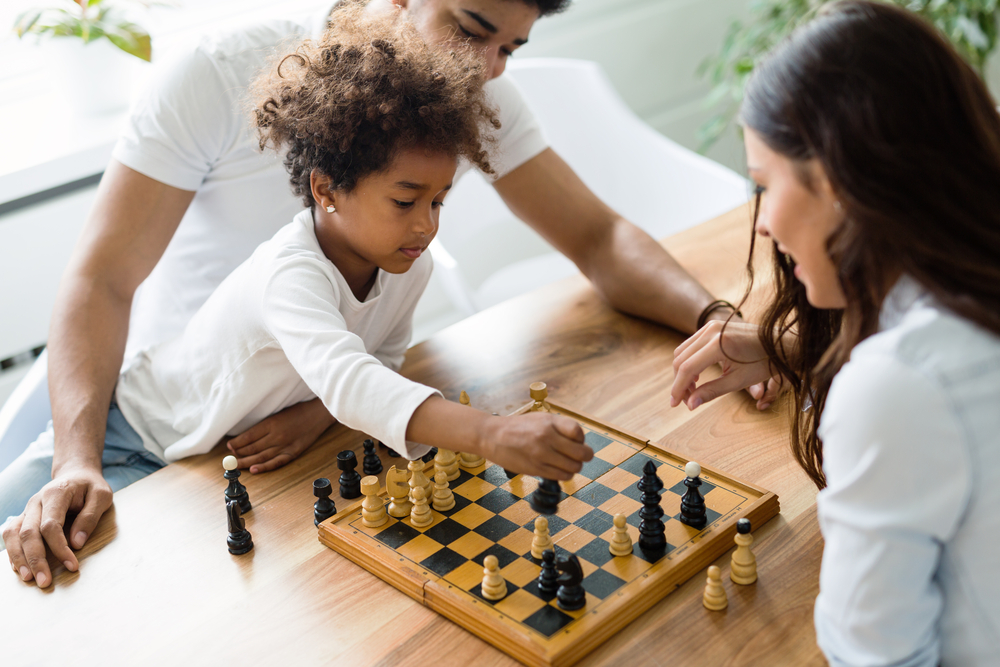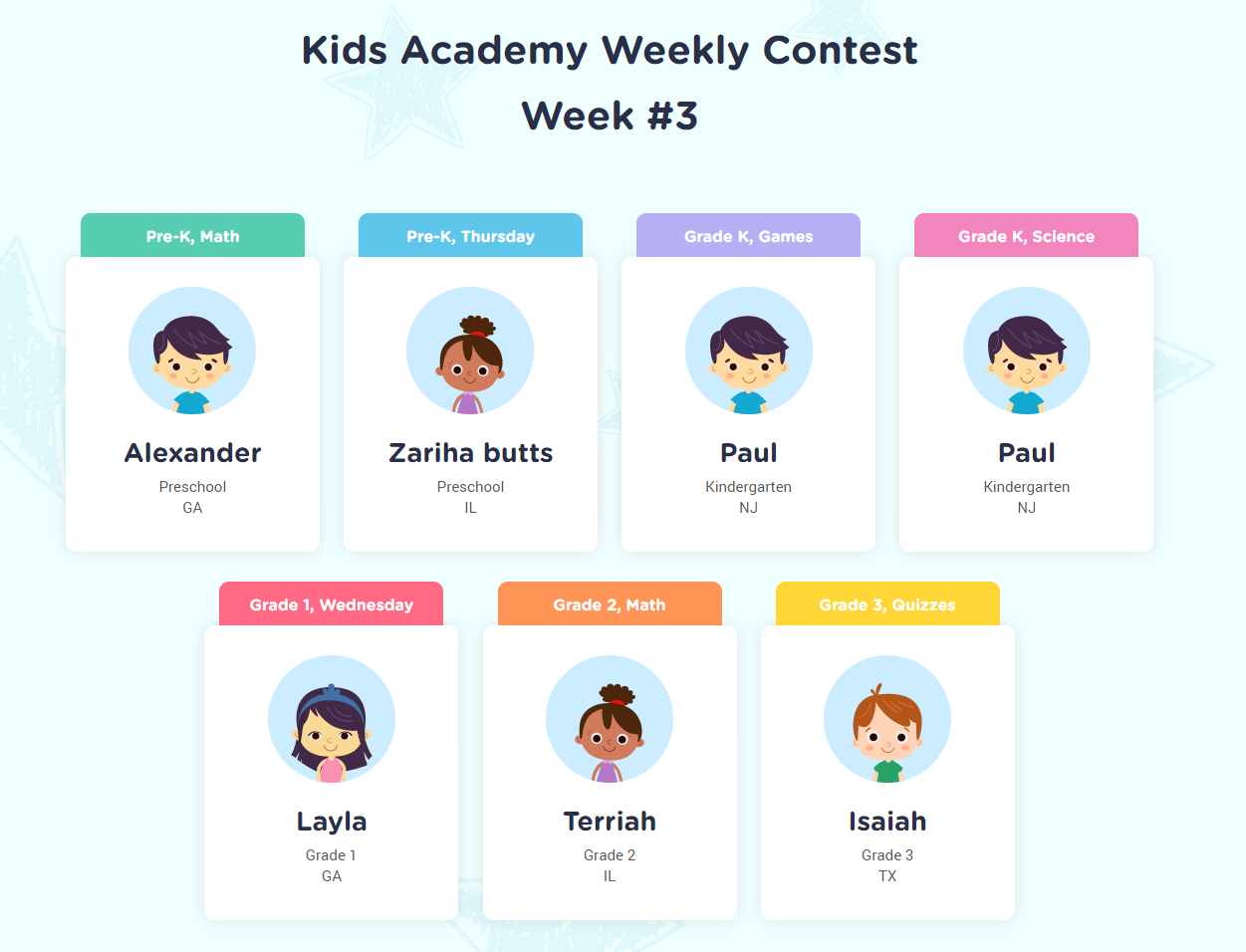Spatial awareness Chess Worksheets for Ages 4-7
3 filtered results
-
From - To
Explore our engaging Spatial Awareness Chess Worksheets designed specifically for children aged 4-7! These interactive activities help young learners develop essential spatial reasoning skills while introducing them to the fascinating world of chess. Through fun and creative exercises, children will enhance their ability to visualize and manipulate objects, strengthen problem-solving skills, and improve critical thinking abilities. Each worksheet is crafted with age-appropriate content, striking a perfect balance between education and enjoyment. Foster a love for chess while building important cognitive skills – download our worksheets today and watch your child's understanding of space and strategy flourish!
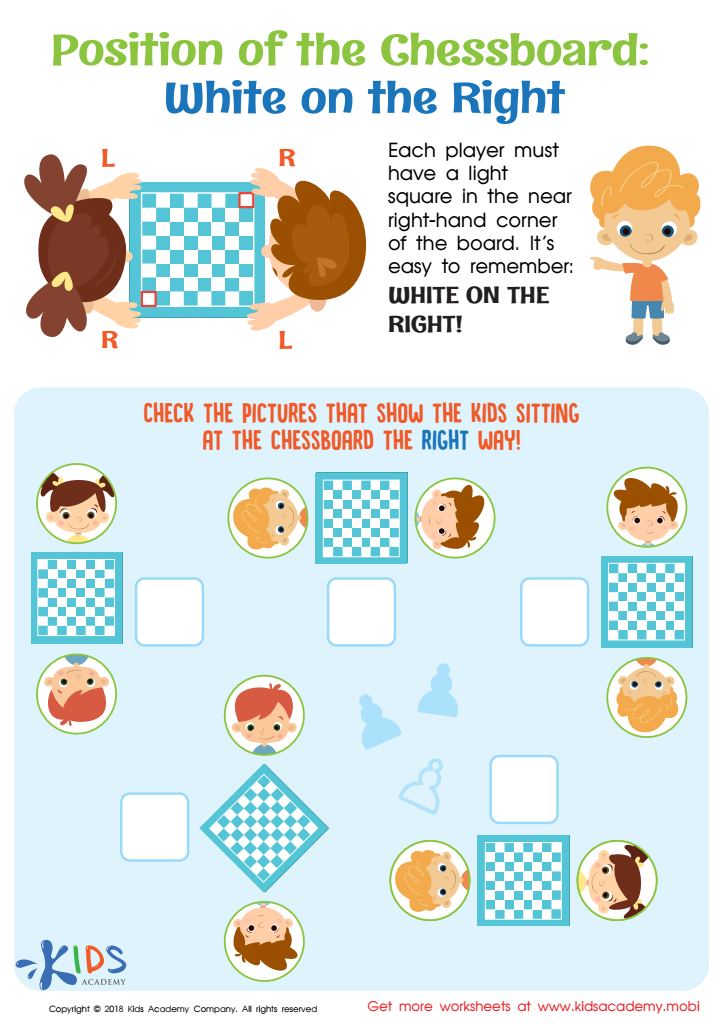

Position of the Chessboard: White on the Right Worksheet
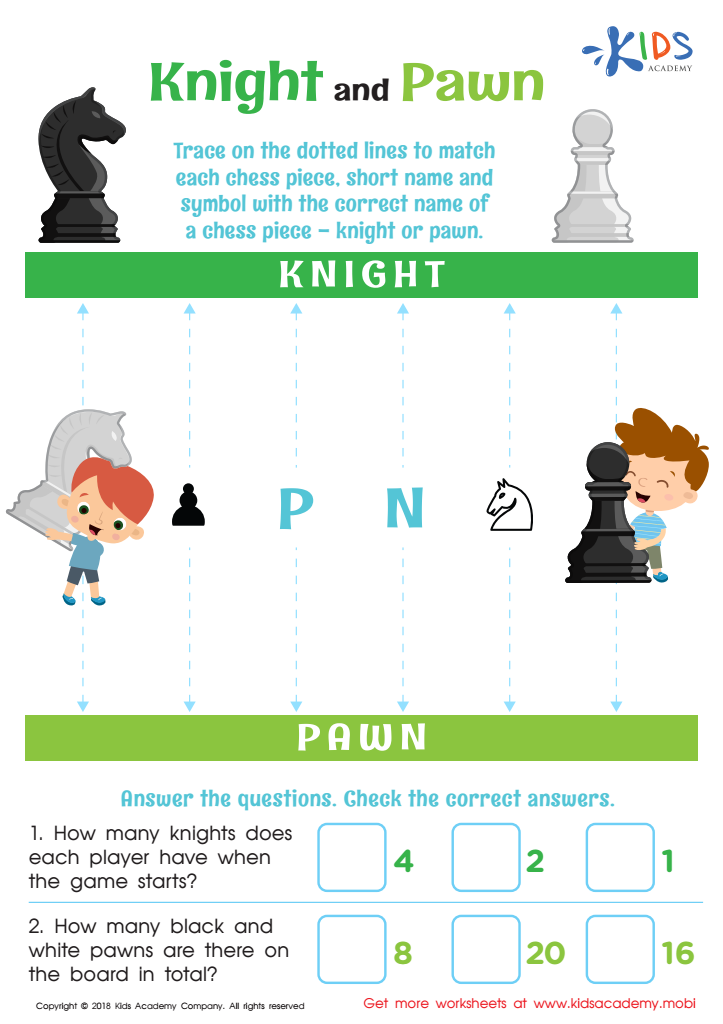

Knight and Pawn Worksheet
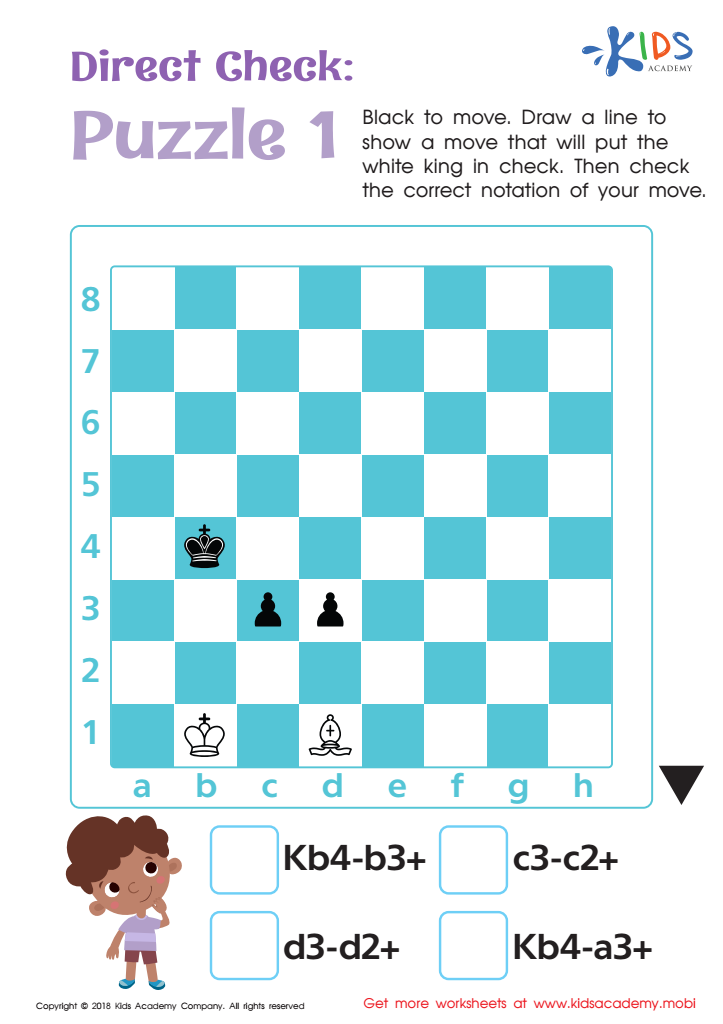

Direct Check: Puzzle 1 Worksheet
Spatial awareness in early childhood development is crucial, and chess offers a unique platform to enhance this skill in children ages 4-7. As children engage with the game, they learn to visualize the chessboard and anticipate their own and their opponent's moves, fostering an understanding of space, distance, and strategic thinking. This early exposure helps build a foundation for complex problem-solving abilities, which can translate into better performance in math and science later on.
Additionally, playing chess promotes critical cognitive functions such as memory, concentration, and patience. For parents and teachers, integrating chess into playtime or the classroom can serve as an enjoyable and enriching activity that encourages mental agility. Children learn to think ahead, evaluate different possibilities, and make decisions based on visual information, cultivating both independent and collaborative skills.
Moreover, chess fosters social interaction and teaches important life skills such as sportsmanship and resilience. Parents and teachers should care about spatial awareness chess, as it not only sharpens cognitive abilities but also prepares children to face challenges in structured and playful environments, building self-confidence and enhancing overall development. Encouraging today’s young learners to embrace chess could lead to lifelong benefits.
 Assign to My Students
Assign to My Students


